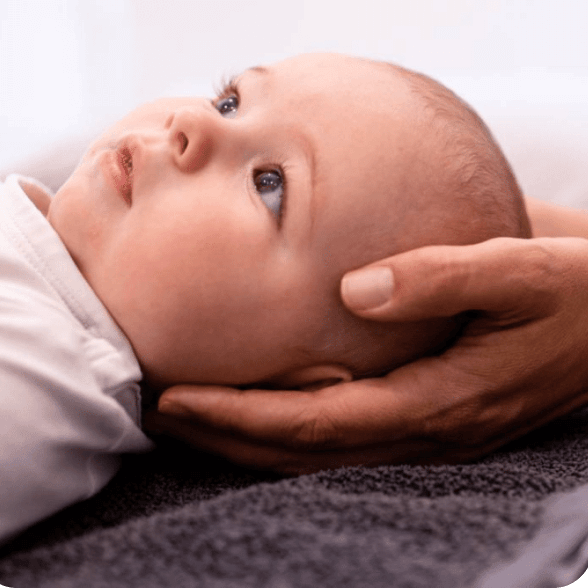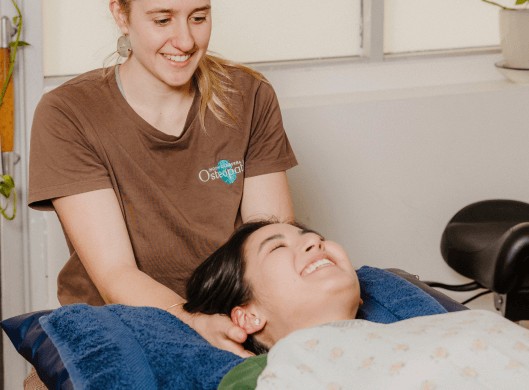We are primary healthcare practitioners
Osteopathy is a form of manual therapy which recognises the important link between the structure of the body and the way it functions. Osteopaths focus on how the skeleton, joints, muscles, nerves, circulation, connective tissue and internal organs work together as a unit. Using skilled evaluation, diagnosis and a wide range of hands-on techniques, osteopaths can assess and treat a wide range of aches and pains. Some of our practitioners have specific further training in the treatment of infants and children.
Osteopathic treatment uses techniques such as stretching and massage for general treatment of the soft tissues (muscles, tendons and ligaments) along with mobilisation of specific joints and soft tissues. Osteopaths do not perform spinal manipulation on children under 12 years of age.
In Australia, osteopaths are government registered practitioners who complete around five years’ of university training in anatomy, physiology, pathology, general medical diagnosis and osteopathic techniques.
Osteopaths are primary healthcare practitioners and are trained to recognise conditions that require medical referral. They are also trained to perform standard medical examinations of the musculoskeletal, cardiovascular, respiratory and nervous systems.

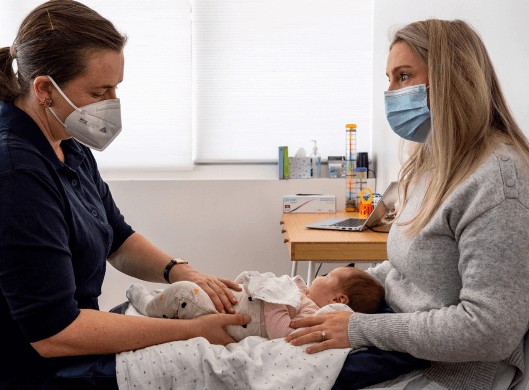
Osteopathy may help with a wide range of conditions such as:
Conditions commonly affecting adults:
- Lower back/neck pain
- Sporting injuries
- Mastitis
- Headaches/Migraines
- Post-Concussion Syndrome
- Bursitis
- Pregnancy related pelvic girdle pain
- Plantar Fasciitis
Conditions we see in infants:
- Asymmetry and stiffness
- Feeding issues, and pre and post tongue-tie division
- Neck rotation preference and Plagiocephaly (head shape asymmetry)
- Unsettled and uncomfortable babies
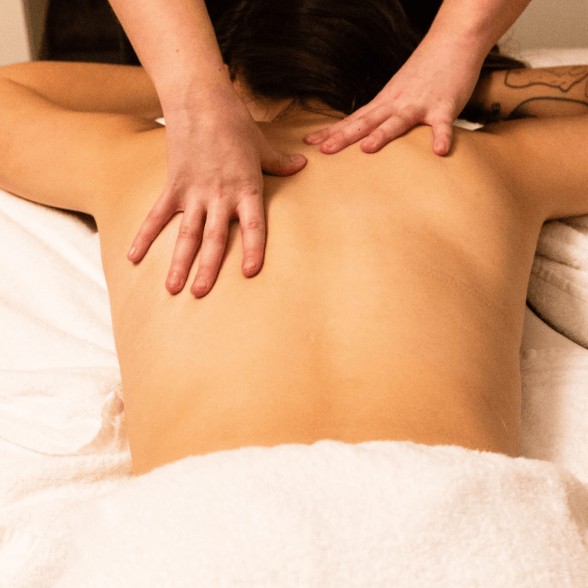
When you first visit an Osteopath
Here are some of the steps that a patient goes through when consulting with an Osteopath:
Your practitioner will firstly take your case history by asking questions about your presenting symptoms, medical history, current exercise routine, and the impact of your aches, pains, or injuries on your day-to-day life. We’ll then discuss your goals for the session and what you would like to achieve from treatment, as well as your longer-term health goals.
For children and babies we take a thorough history including pregnancy and birth, if your child is happy in the car and in tummy time, how they are feeding, sleeping, and how their gut is functioning.
Your practitioner will then conduct a comprehensive physical assessment. This may involve evaluating your range of motion, performing practical tests, and observing movements and positions related to your area of concern.
For children and babies we’ll look at how comfortably and symmetrically your child is moving, whether they are reaching their developmental milestones, and and how tense or relaxed they feel.
Based on the information gathered from the case history and assessment, your practitioner will then work towards formulating a diagnosis. In simple terms, they will explain what’s happening with your or your child’s body. Our aim is to help you understand your/ your child’s current health, what is going right and wrong, and what factors may be contributing to any issues that have arisen.
This is where we develop a comprehensive plan. Based on the goals we set together at the start we’ll explore various management options. This will typically start with deciding what kind of treatment approach is needed and how many appointments that may require. Osteopaths are primarily manual therapists, so we use our hands to address areas in your body or your child’s body that are stiff and uncomfortable. Because we use our hands so much, we develop excellent palpatory skills, the same way a chef can tell what herbs are in a dish by tasting it, or a musician can hear each note in an orchestra.
We may then discuss modifying activities of daily living (e.g., sleep positions, desk ergonomics), give home exercises and stretches, as well as recommendations for any further referral if necessary. Our goal is to provide you with practical solutions that can be incorporated into your everyday routine.
Our professional, highly trained team are here to help you.
All of our osteopaths are AHPRA-registered allied health professionals and members of Osteopathy Australia. But more than that, we’re a diverse team with unique backgrounds, interests, and additional training. Explore our bios by following the link below to find the osteopath who’s the best fit for you!


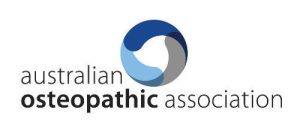
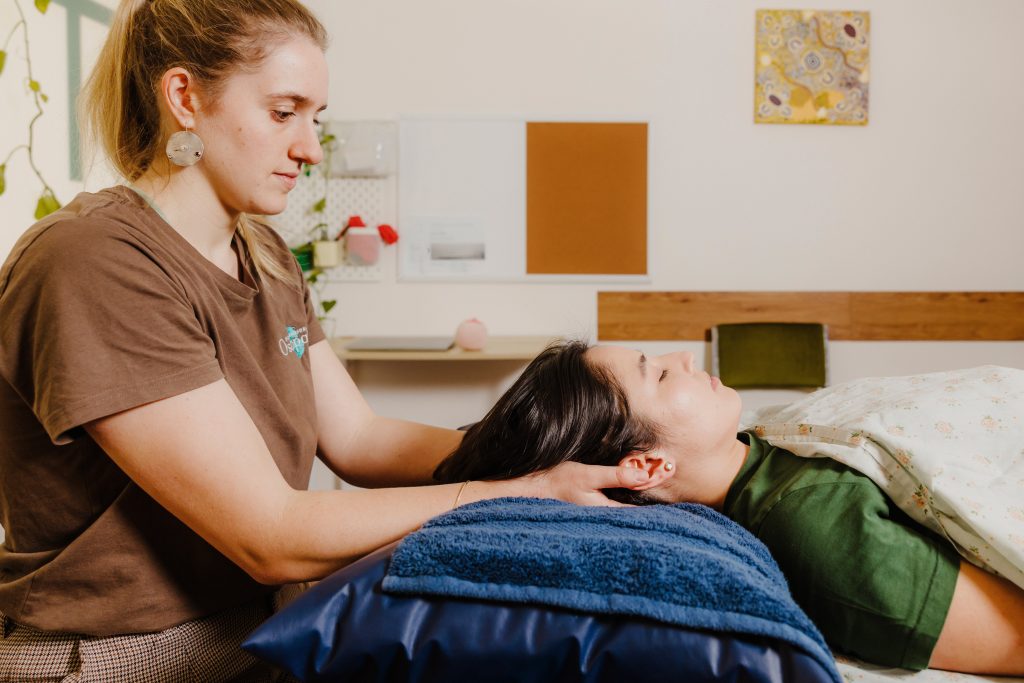
Frequently Asked Questions
Here are the most common questions we get asked about Osteopathy:
No you do not need a referral to see us. You can make an appointment without a referral as Osteopaths are primary health practitioners. This also means that your Osteopath will be able to refer you for further testing such as x-rays or scans, if required.

At North Canberra Osteopathy, all of our Osteopaths have completed university training in anatomy, physiology, pathology, neurological and orthopaedic testing, and Osteopathic techniques. We are members of the Australian Osteopathic Association, registered with the Australian Health Practitioner Regulation Agency and regularly undergo further professional development and postgraduate study.
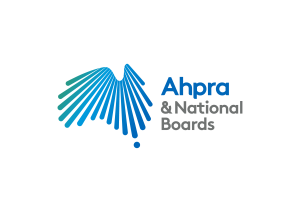
Yes, absolutely! We have lots of ways to modify our techniques to make them comfortable and appropriate for pregnancy. We also have a special pregnancy cushion that makes it comfortable to lie face-down for your treatment.
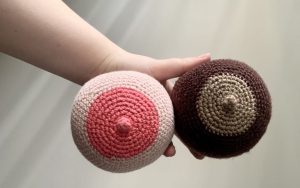
Yes, we see lots of babies at the clinic, it’s one of our special interests at North Canberra Osteo. Most of the babies we look after are tight, asymmetrical, or uncomfortable, either from their birth or from their position in utero. We also see babies who are having issues with feeding, and we work closely with a referral network of midwives, lactation consultants and GPs to support families who are having trouble breastfeeding. One of the other common things we see are babies who cry in the car. If you’d like to talk to us before booking your baby in just give us a call, we’re very happy to talk through any questions you might have.

Meet our Team
Osteopaths in Australia are allied health professionals who have around 5 years of university training.

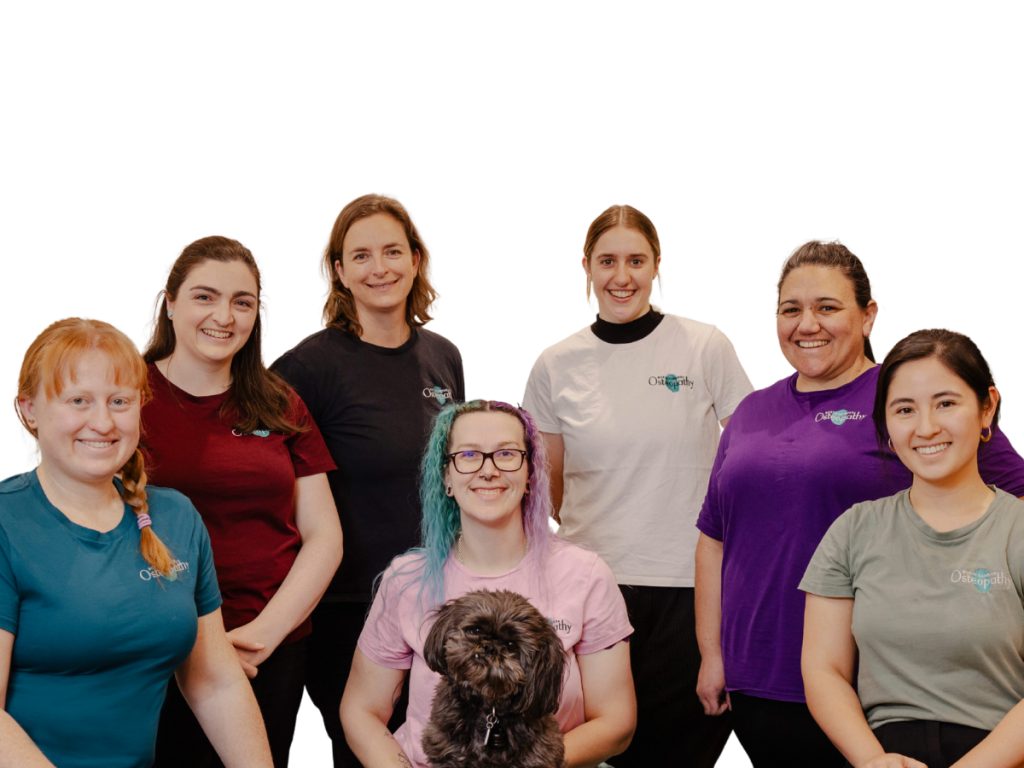
Our Referral Network
We rely on a network of practitioners throughout Canberra to help us, help you.

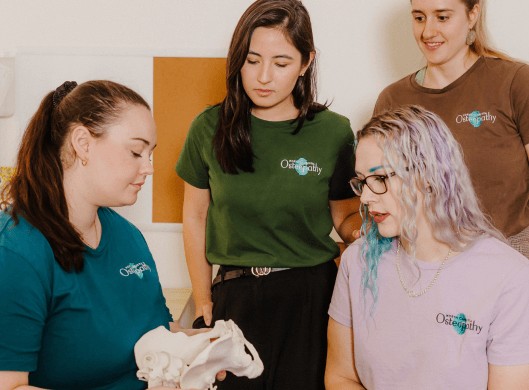
About Us
We’re a team of six registered osteopaths, practicing out of the Hackett Shops in North Canberra.

